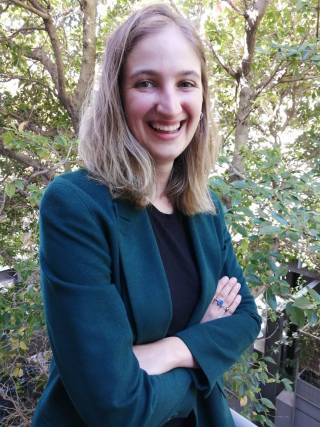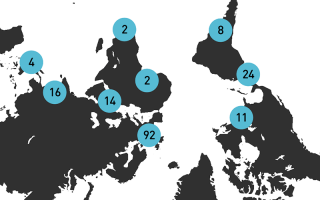
Initially, I started studying chemical engineering, with the intention of specialising in environmental engineering. However, a few years in I realised that I was more passionate about the socio-environmental aspects of the environmental issues we face. One quick academic U-turn later, I graduated with a BSc Environmental Science and Applied Biology. During this degree I noticed a disconnect in the conversation around environmental concerns and nature conservation – the people and politics that drive so many of the decisions and consequences we face are absent from the conversation.
With the intent of crossing the boundary between science and politics, I started working at a small legal NGO advocating indigenous rights in Southern Africa. The crux of this work was the intersection between indigenous land rights and nature conservation. More specifically, the realisation that the two are often opposing forces and that developmental agendas surrounding sustainability had devastating on-the-ground consequences for local communities. I was introduced to participatory methods of community engagement, which made a lot of sense in ‘defined’ rural communities. Gradually my interest grew in understanding how such participatory methods would function in cities, which is where many of our environmental concerns concentrate. Because of this, I was thrilled when I found the Environment and Sustainable Development (ESD) MSc at the Development Planning Unit. It straddled all my interest: sustainability in cities of the global South, participatory methods and a strong focus on practical aspects.
When I finally arrived a year later, I was most excited by the incredible international diversity of my fellow students at the department and in ESD. Everyone had different disciplinary backgrounds and many different nationalities were represented, especially from the Global South. Rather than act as a point of division, everyone’s divergent backgrounds meant that everyone fitted in: we had all come into the space as equals to learn. I hold that my classmates taught me my most valuable lessons through their incredible knowledge and willingness to share. The course is structured around groupwork in nearly every module. As such, although we were a big class, everyone got to know each other through constantly rotating groups for seminars, presentations and the practice module. Personally, the year held many lessons in what true collaborative work means, which is something I will carry into both my professional and private life.
Academically, I enjoyed the complexity of the urban development space. It meant we had to grapple with uncertainty, complexity and dynamic contexts. The course managed to straddle a balance between theory and practice across the different modules. Political ecology offered a deep dive into theoretical underpinnings, critiques of sustainability and development as a whole. Urban environmental management and planning connected us to current international discourse and practice in the field. Both of these subjects were then applied to a very specific context in the practice module, which was a great opportunity to apply and test the various methods and ways of thinking we had learnt. I particularly enjoyed how submissions varied in formats. We submitted essays, a city profile, a policy brief, presentations, reflective pieces, a story and a video, allowing us to prepare for the dynamic workplaces of today.
The DPU encourages critical thinking and allows for critique of development as a discipline. At the same time, I appreciated that much of the critique was informed by on-the-ground experiences and voices, rather than being limited to the academic realm. Allowing for critical reflection of academia created a stimulating academic space that was connected to practice and asked the difficult questions that arose from practice. Our academic ability to reflect on practice and lived reality was tested when the COVID-19 pandemic cancelled our fieldtrip and many in the class returned to their home countries. We used our group project as an opportunity to academically understand the pandemic that was unfolding around us. Specifically, we were tracking the consequences of the pandemic on tenure security in informal settlements and thinking through ways of potentially minimising such impacts. Virtual groupwork and online engagements were novel challenges we had to learn and navigate as a part of our practice module, testing my adaptability, negotiation skills and creative problem-solving ability. We eventually completed our ‘virtual fieldtrip’ and thesis from varying degrees of lockdown, quarantine and isolation.
Currently I am working for the Development Action Group (DAG) in Cape Town, an NGO advocating for urban land rights and affordable housing. I was introduced to them through the ESD practice module, during which I had the opportunity to interview the organisation’s executive director. I am now a part of their Land Value Capture programme and work on institutionalising innovative land-based financing tools in local metropolitan governments. We focus on finding methods to finance just and inclusive cities while working towards spatial transformation. The MSc allowed me to focus much of my project work on topics of land and housing and the intersections of these issues with environmental narratives, allowing me to build a specific skills base according to my personal and academic interests. Whether facilitating stakeholder engagements, applying theories of environmental justice to land issues or formatting a PowerPoint, I use many hard and particularly soft skills learnt in ESD every day and can only thank my incredible classmates and the DPU for the experience.
 Close
Close


